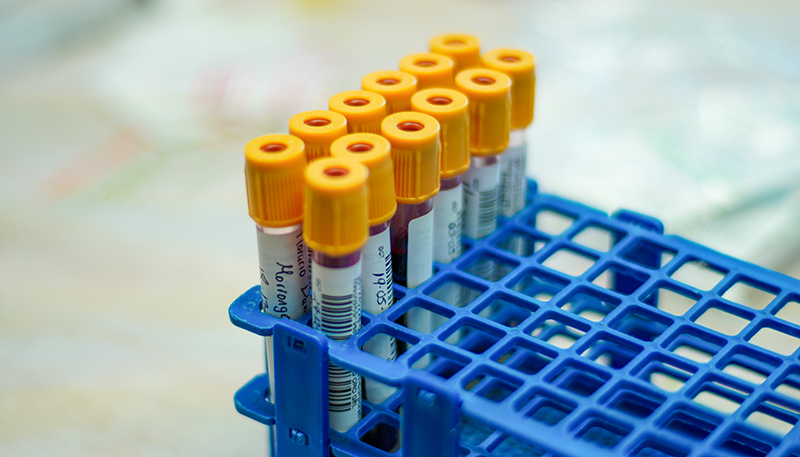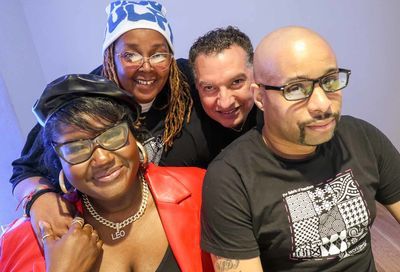Gilead Sciences gives $4.5 million to support transgender-led health initiatives
Grants given to 15 transgender-led organizations to try and improve trans health outcomes

“We really wanted to make a meaningful impact within transgender communities,” Darwin Thompson, associate director of corporate giving at Gilead Sciences, says of the company’s newly launched TRANScend Community Impact Fund.
“We started to really think about what an engagement strategy would look like,” adds Thompson. “We then thought, to be more impactful and beneficial to the community, we needed to listen to the [transgender] community, bring the community in, have the community tell us what their needs are, what the needs of the trans-led organizations are, and then craft something after we listen to them.”
From those discussions emerged the newly launched fund, which, under the advisement of a board of 12 transgender activists and community leaders, selected 15 organizations to receive a portion of $4.5 million over a two-year period.
The 15 organizations are Transgender Law Center, Advocates for Better Care, the national hotline Translifeline, the Translatinx Network, Brave Space, Princess Janae Place, Hawaii Health, the Birmingham-based T.A.K.E. Resource Center, the Central Virginia-based Nationz Foundation, Casa Ruby, Bienestar, the Translatin@ Coalition, the Texas-based service organization FLAS, Inc., Destination Tomorrow, and the Transgender Strategy Center — with the latter two receiving $1 million each.
According to Thompson, the idea underlying the fund was first floated during the 2018 U.S. Conference on AIDS, when Gilead partnered with the Miami-based Arianna Center, which brought a number of transgender health activists and advocates to the conference to speak about the disparities facing the transgender community.
For example, according to the U.S. Centers for Disease Control and Prevention, while 14% of trans women in the United States are living with HIV, that number rises to 44% among black trans women, and 26% among Latina trans women, while only 7% of white trans women have HIV.
In 2017, transgender people were three times more likely than the national average to receive a new HIV diagnosis, and the numbers are particularly bleak among those from the American South, who comprised half of all new transgender HIV diagnoses from 2009-2014.
Thompson characterizes the TRANScend Community Impact Plan, which developed from that 2018 meeting, as a three-pronged approach to addressing health disparities among transgender people.
The first pillar of the campaign involves being a grant-making partner, in which Gilead, through the New York-based Destination Tomorrow, can provide grants to smaller grassroots transgender-led organizations.
The second prong of the approach, focusing on capacity-building, involves Transgender Strategy Center, which can work with trans-led organizations to make themselves sustainable and identify sources through which they can obtain the necessary resources to support various programs or initiatives.

The third prong involves supporting direct service programs, not only limited to those that offer HIV/STD testing, but that offer name and gender-change clinics, run drop-in centers, and provide professional development workshops to serve transgender individuals.
“We really thought about this very intentionally, and so we really think of this project as a community-based grant-making program,” Thompson says. “We also convened an external review panel of trans activists and community members to review the applications that were compliant and then to provide recommendations as to who got funded, so it was truly the community making these decisions.”
Related: Advocates release “roadmap” aimed at ending HIV epidemic by 2025
Darwin says the point of the TRANScend Community Impact Fund does not require the recipients of the funding to put clients on Gilead’s medications or prevention treatments, instead allowing organizations to tackle other social determinants that contribute to disparities in health care and HIV.
For example, Nationz Foundation, the transgender-led organization that serves communities in Central Virginia, will use the $200,000 it received through the fund to expand its services across the commonwealth.
Those services include HIV and STI education, prevention, and testing, a food pantry, support groups geared towards specific communities, and “dress for success” and resume-building trainings to help transgender individuals achieve more financial stability.
“We know that trans people face housing instability, they face unemployment, most are ostracized from family and really have no social support and no community. And when you have all of these issues that are in play, your health is really not your main priority when you have nowhere to live, or you don’t have a job, or you don’t have enough food to eat,” says Zakia McKensey, the founder and executive director of Nationz Foundation.

Bamby Salcedo, the founder and CEO of the Los Angeles-based TransLatin@ Coalition, embraces a similar view, saying: “That’s how we look at HIV prevention, right? If we are able to address the social determinants, which includes, housing and employment and education, or access to education, access to health care, all of those things are going to be able to prevent HIV infections in our community.”
Salcedo says the TransLatin@ Coalition will use the $100,000 it has received to fund Hope House, a transitional living program for transgender people that seeks to find them more permanent housing and provide case management services to meet their needs.
Morey Riordan, founding director of Transgender Strategy Center, notes that the reason his organization has received a greater amount — $1 million — is because of TSC’s ability to provide capacity-building to granteees.
“We’ll be providing individualized and group coaching and technical assistance to the grantee cohort,” he says. “I feel like Gilead really recognized that it’s important to pull experts from the trans community to work with the trans community.”
Specifically, TSC will be working with its fellow grantees, especially groups that specifically deal with transgender women of color, to strengthen them in a way that will allow them to continue their various programs and initiatives even after the Gilead money runs out.
“Some of [these organizations] are quite small, and they’ll be getting their [sea] legs, and expanding what they’re doing,” he says. “Our hope would be that after two years of providing them with support, they will have tapped into other resources. They’ll have reached new parts of the community, and have established even more pathways to HIV prevention. We feel like we’re well-suited to work side-by-side, in terms of coaching some of these leaders and organizations to be sustainable, whether that’s helping them look at their financial systems, or fundraising, or human relations, just getting them a more secure foundation.”
Read more:
Conservatives demand Hallmark Channel keep LGBTQ characters out of its Christmas films
Kentucky bill would bar transgender students from restrooms matching their gender identity
Supreme Court refuses to hear Texas transgender inmate’s request for gender confirmation surgery
Support Metro Weekly’s Journalism
These are challenging times for news organizations. And yet it’s crucial we stay active and provide vital resources and information to both our local readers and the world. So won’t you please take a moment and consider supporting Metro Weekly with a membership? For as little as $5 a month, you can help ensure Metro Weekly magazine and MetroWeekly.com remain free, viable resources as we provide the best, most diverse, culturally-resonant LGBTQ coverage in both the D.C. region and around the world. Memberships come with exclusive perks and discounts, your own personal digital delivery of each week’s magazine (and an archive), access to our Member's Lounge when it launches this fall, and exclusive members-only items like Metro Weekly Membership Mugs and Tote Bags! Check out all our membership levels here and please join us today!

























You must be logged in to post a comment.